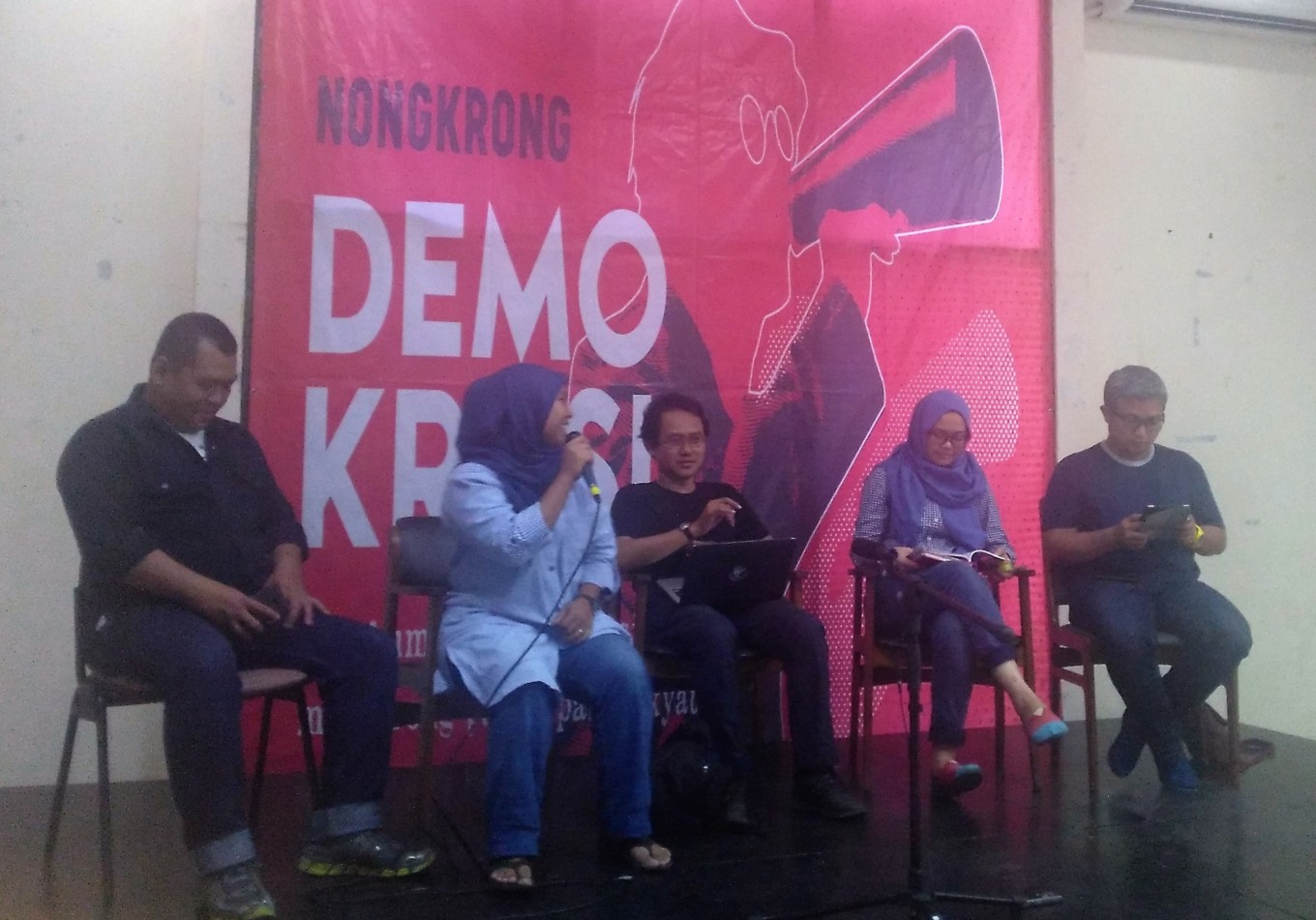Indonesia's protectionism complicates poverty alleviation: Expert
Change Size
 Rachmi Hertanti (second left) of Indonesia for Global Justice (IGJ) speaks at a discussion at Jakarta Legal Aid Institute's (LBH) office in Jakarta on Aug. 28. She called for the government to stop any efforts to join the Trans-Pacific Partnership (TPP) agreement, saying that it would only bankrupt Indonesia. (JP/Reza Zafiruddin)
Rachmi Hertanti (second left) of Indonesia for Global Justice (IGJ) speaks at a discussion at Jakarta Legal Aid Institute's (LBH) office in Jakarta on Aug. 28. She called for the government to stop any efforts to join the Trans-Pacific Partnership (TPP) agreement, saying that it would only bankrupt Indonesia. (JP/Reza Zafiruddin)
T
rade protection policies in Indonesia are disrupting the manufacturing growth, reducing the trade and will ultimately backfire Indonesia’s efforts in poverty alleviation, an Australian expert has said.
According to Southeast Asia studies expert Günther Schulze, Indonesia's negative investment list (DNI) as well as local component requirement (TKDN) has been discouraging investment and trade instead of making it flourish.
He pointed out the trade barrier on agricultural products that led to an increasing price of staple goods, such as rice, which directly effects poor people. Amid the inefficient farming system, the price of Indonesian rice is 73 percent higher than that in Vietnam.
"If you open up trade with Vietnam, the rice price might go down by 20 percent. According to the World Bank in 2013, a 10 percentage point increase [pp] in rice price increases poverty rate by 12.45 pp each year for 1.1 million people," he said at Australian National University (ANU)'s Indonesia Update 2016 in Canberra on Friday.
Amid the protectionist policies, Günther said Indonesia's manufacturing had been stagnant, while other countries saw an upward trend. He pointed out Malaysia, which started to shift from commodities-based to manufacturing-based trade in the 1980s by welcoming foreign investment to establish a strong industrial base.
"Indonesia manufacturing market share does not really change at the level of 4.6 percent, China has gone up to above 20 percent, Malaysia has gone up and [is] sort of stabling at a much higher level around 14 percent and Vietnam goes up to 11 percent," he added. (ags)
Anton Hermansyah & Marguerite Afra Sapiie contributed to this story.









